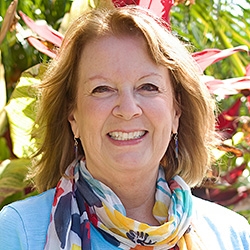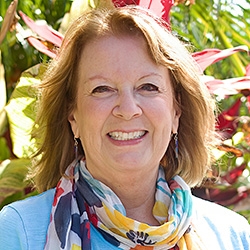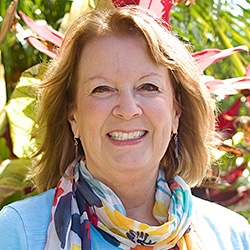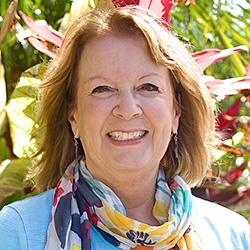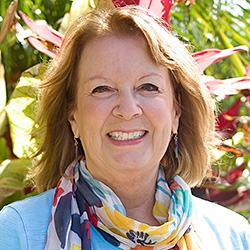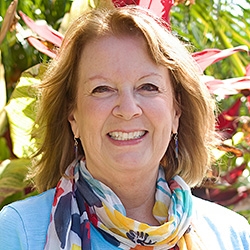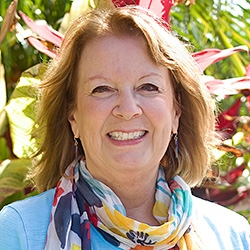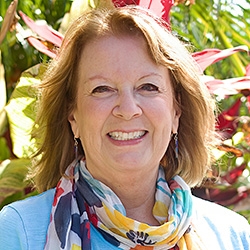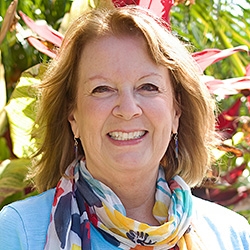
Search Results: money
-
What is it that we are taught we can’t have, and what is it that we are encouraged to pursue instead? This guide could help you see through what's hidden behind the curtain of our societal conditioning.
-
If you're stuck when making a decision with someone, it's likely that you've skipped hearing and connecting to one another's needs. Slow down and listen for what's really important underneath the content. This allows you to make decisions that are more fulfilling and harmonious.
-
Within the pandemic, limitations of our market economies are more visible. Extreme need is exposed when the economy is collapsing and so many people are without jobs. We can now see how it’s possible to direct resources where they are most needed, solely out of care and interconnection. This is a call to explore a more viable way of living, that centers relationship over transaction.
-
When we have few external resources (money, time, health connections, etc), we can still empower ourselves and one another. We can strengthen our internal resources, inspire people to join our cause, build solidarity, and influence others who have external resources to support us and our causes.
-
Trainer Tip: We all have the same needs, but may prioritize different needs at different times -- and that order of prioritization may look different from other people's perspectives. If your prioritization of needs isn't the same as another's, that doesn't mean there's something wrong with you nor them. We can look for many ways to meet our prioritized needs.
-
Trainer Tip: Identify one goal and take one small step toward achieving it today. It doesn’t matter how much or how often. The reward is in taking the first step, and then the second and third until you’ve attained your goal.
-
Trainer Tip: Today, when you tell yourself that you "have to" or "should" do something, notice what you feel and experience - is it a sense of duty, obligation, guilt, shame, overwhelm, constriction, heaviness? Then consider the underlying needs you are trying to meet with the activity. This can shift the purpose and intention with an energy that motivates our actions can bring empowerment and joy to our lives.
-
Speaking the truth creates congruence, which creates trust, facilitating understanding and cooperation. Without truth there is no growth in our relationships and community. If this is true, then what keeps us from speaking our truth?
-
Kelly Bryson, veteran and loved CNVC Certified Trainer, brings decades of experience to help you jumpstart your Mastery of Fear by using his unusual blend of experiential exercises, humor, empathy, original songs and stories, transformational truth telling, creativity and FRED (Frequency Resonation Energy Dynamics).
-
Trainer Tip: We can improve our relationships by focusing our attention first on connection instead of other stragegies.
-
Trainer Tip: Mary explains why success isn't dependent upon another person's pain, by reaching for consensus instead of self-sacrifice.
-
In October 2016, CNVC Certified Trainer Gitta Zimmerman held her 5th international workshop for people working with street children in Ruhpolding, Germany. This time most of the participants were already experienced, and we were merging more and more into a family. The workshop focus was on “mediation” and “entrepreneurship.
-
Trainer Tip: When we create situations that value one person’s needs at the expense of another, we open the door for someone to lose. Instead, look to see if you can speak openly and honestly, value the other person’s needs, and create solutions that value all stakeholder needs.
-
Trainer tip: If you have a goal, want to be a "success", or want to do "your best', define what that would look like, and how much. Identify one goal and one thing you can do today to achieve that goal and do it.
-
- Celebrate and nurture your relationship to the Earth — and each other!
- Explore your connections to family, partner, work, nature, self and more
- Discover new ways to grow in community and work together to make this world a better place
- Engage and immerse yourself in NVC while making new friends!
-
Trainer Tip: We all want to be valued in our totality, to be loved even when we make mistakes. Wouldn’t we also like to offer this to ourselves? Compassion is about seeing the humanness in everyone, including ourselves. One way to express compassion is to remember your entire relationship and history of love with someone as a whole, rather than focusing on one disappointing incident.
-
- Learn concrete tools for engaging with others as you embrace individual and collective liberation
- Find your own source of choice even in the face of challenges
- Release the constriction of scarcity
- Find an empowered option to respond to what is happening in our world
- Open the door to the possibility of thriving rather than merely surviving
-
Trainer Tip: Strive for win-win resolutions where no one loses. Try this rather than deciding things by the majority or compromise, where one or more parties feel dissatisfied with the resolution because it involves an element of giving in. An alternative is shifting; both people connect to the needs they are trying to meet, and in doing so, one person makes an honest shift to contribute to the other person’s needs and life.
-
There are many polarizing issues we can resist and fight over. The word "resistance" can mean fighting against what we don’t agree with in counterproductive ways. It can also be the illusion and futility of mentally fighting against reality of 'what is'. But acceptance, non-resistance, of what is doesn’t mean powerless resignation. Another way to resist is to accept and love whole-heartedly, with empathy and care for the people doing the things we are resisting.
-
Even leaders we admire may exhibit behaviors that could be labeled as abusive, at least slightly. This includes not treating followers as equals, using charm, and hiding or twisting truth. In such scenarios a key reason for this is loneliness. If we're using our work and position primarily to gain for appreciation, acknowledgement, and acceptance then we need to examine our own loneliness. We need feedback to keep such conduct in check.




